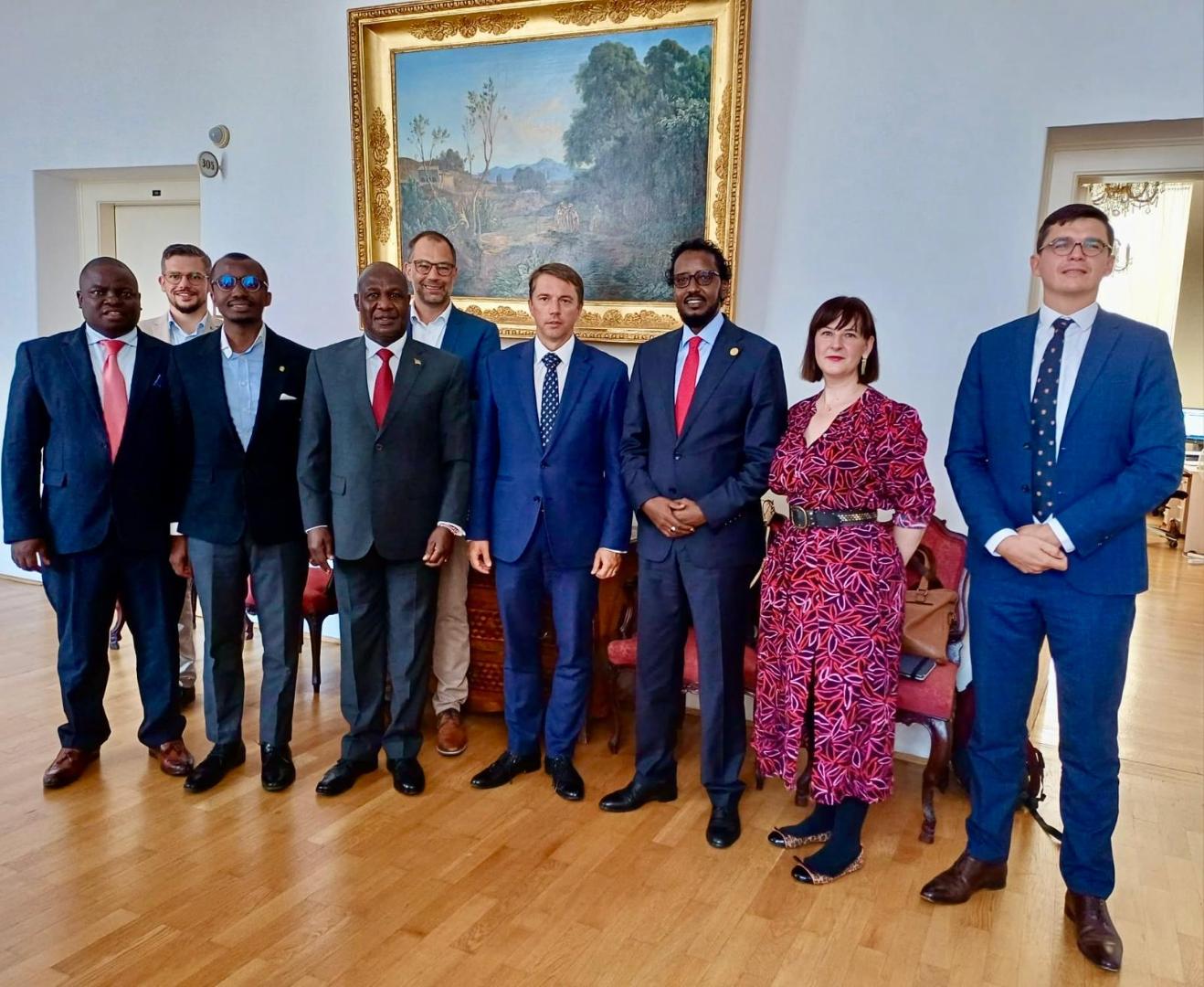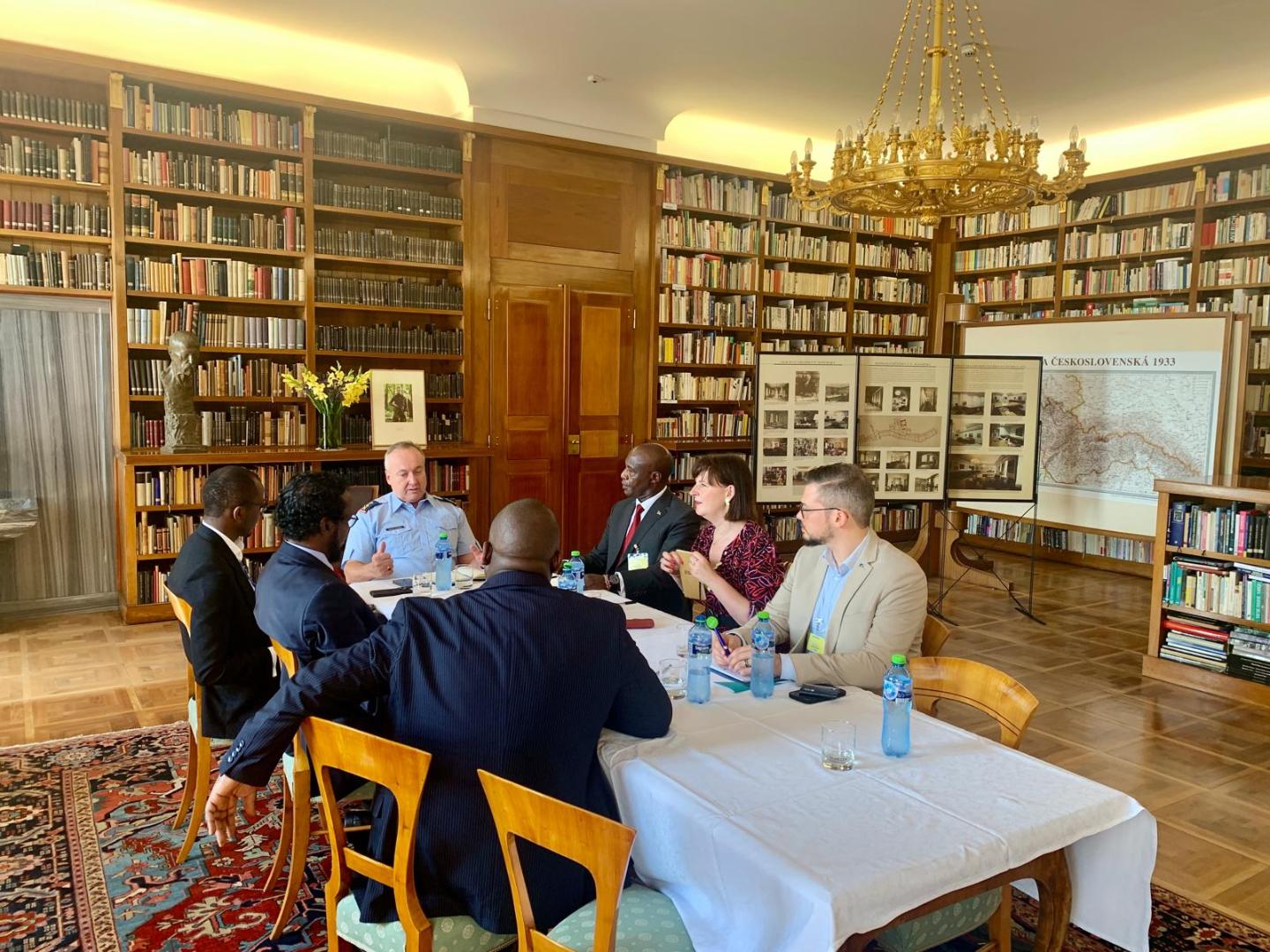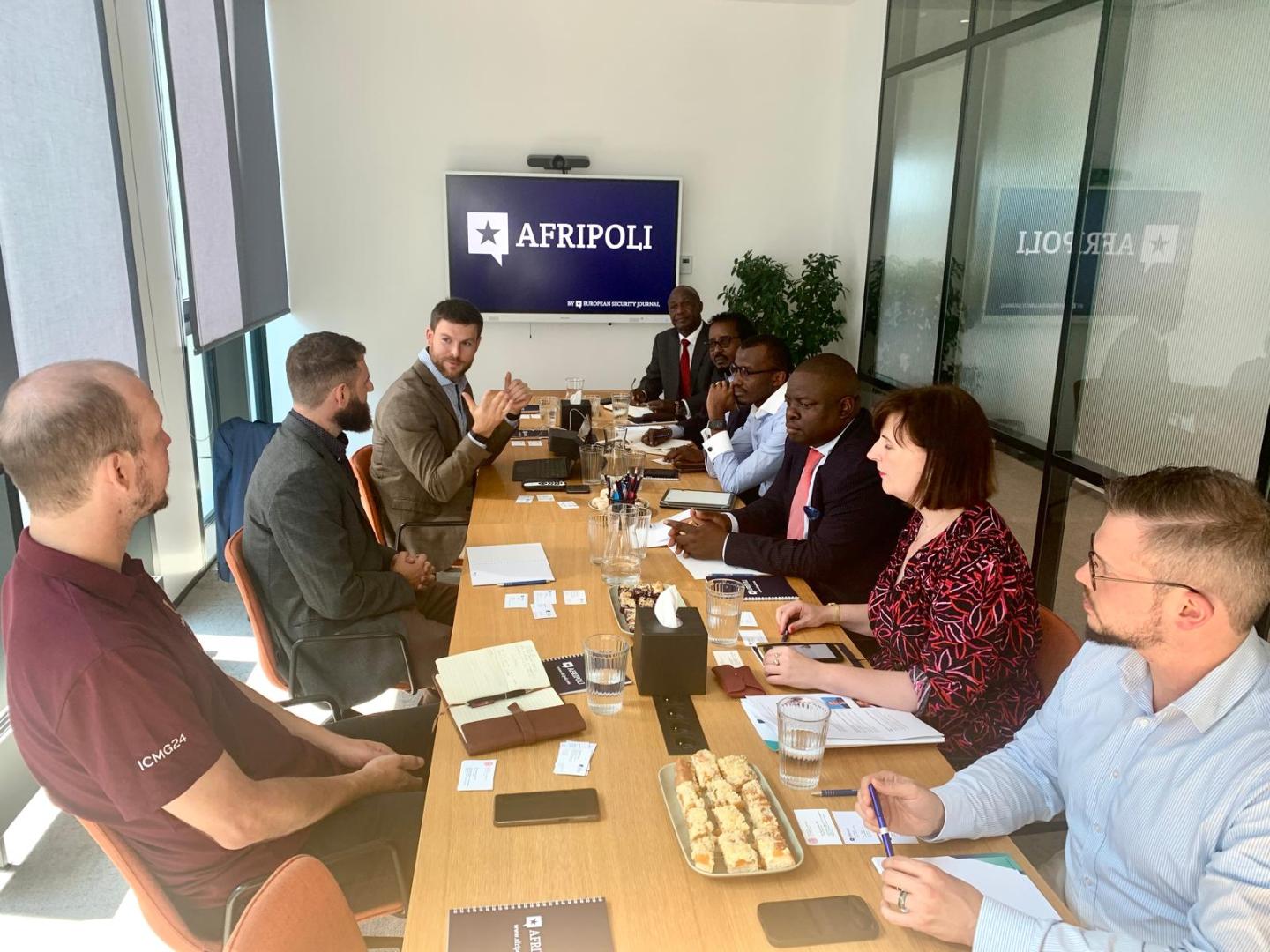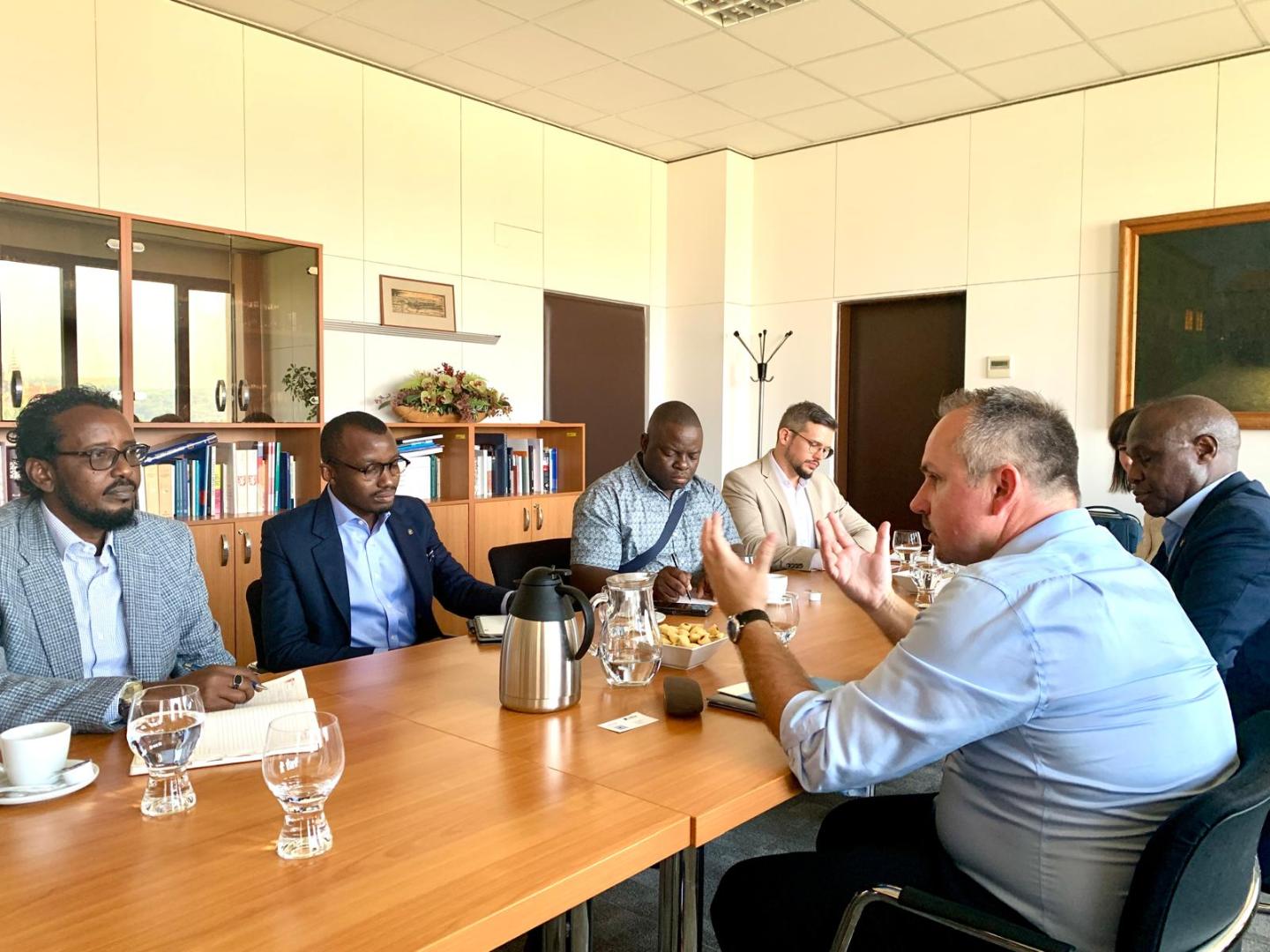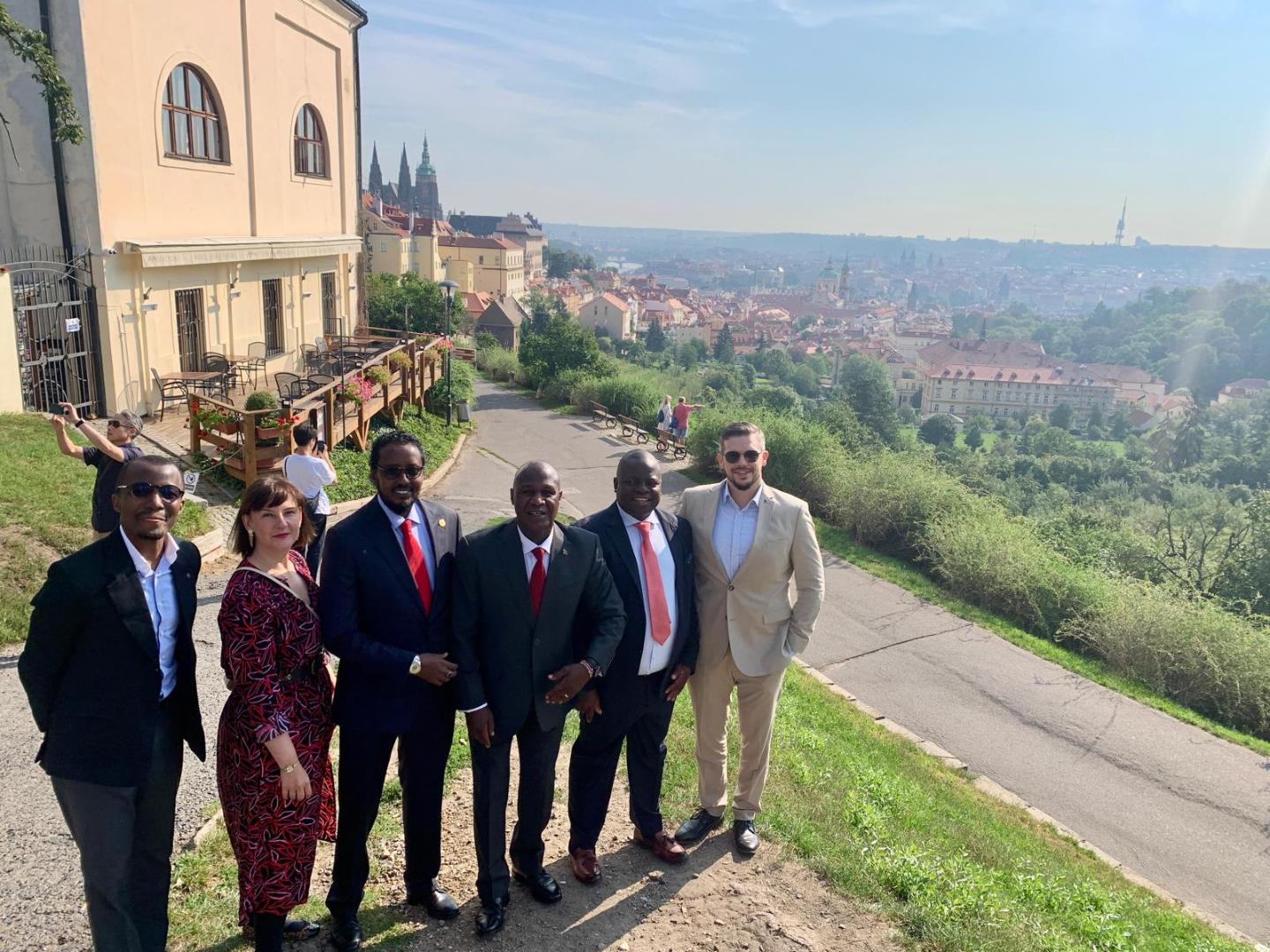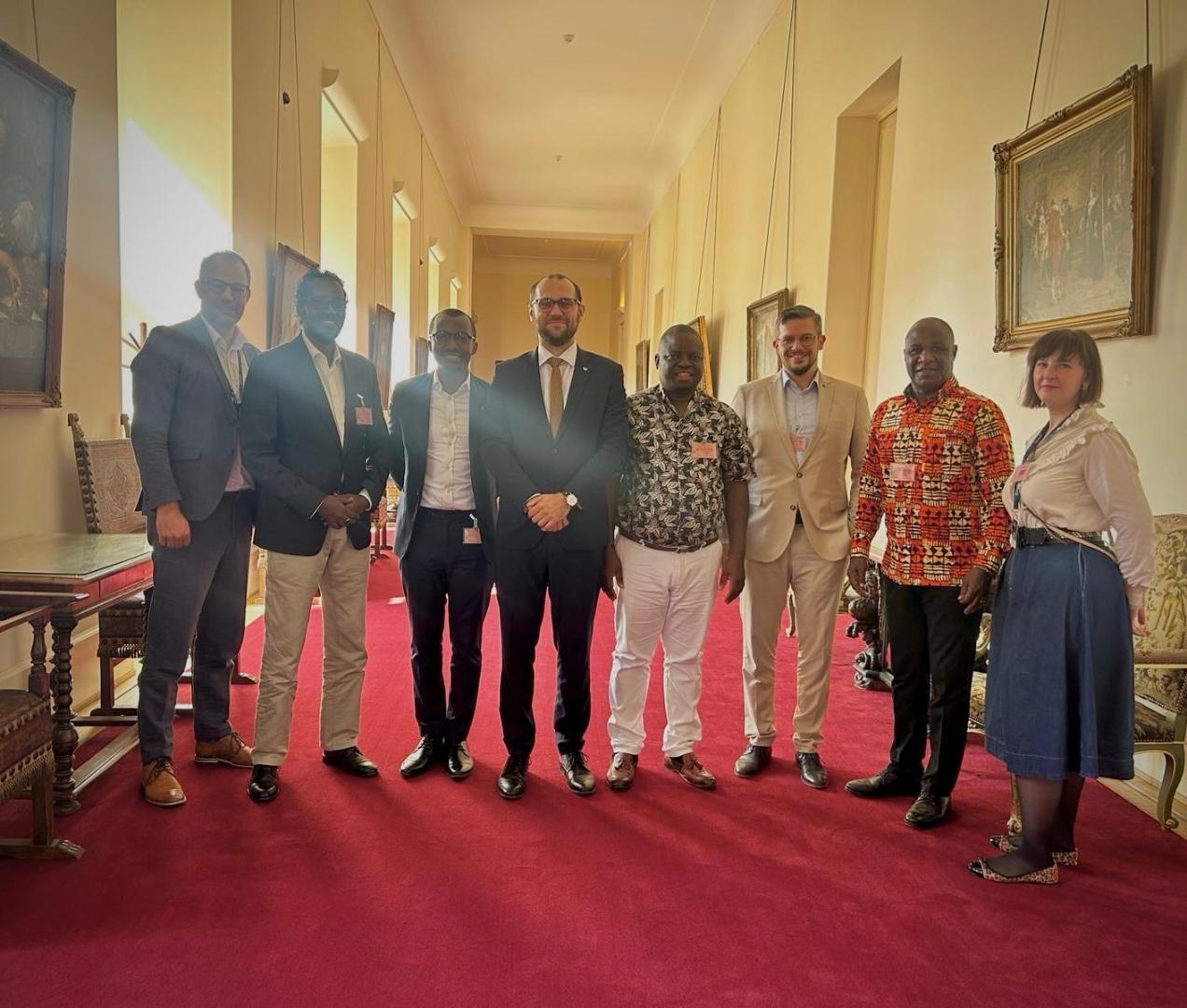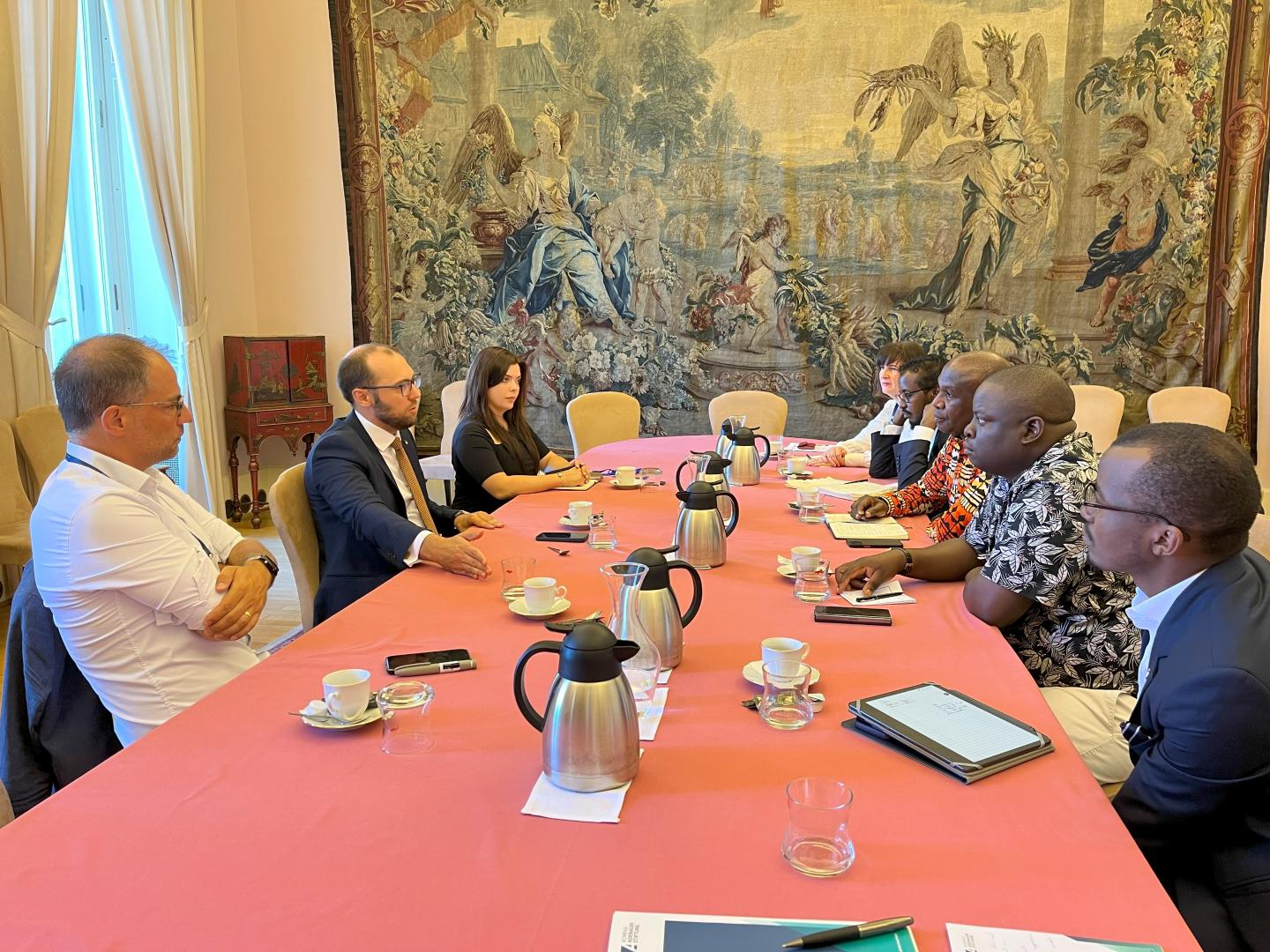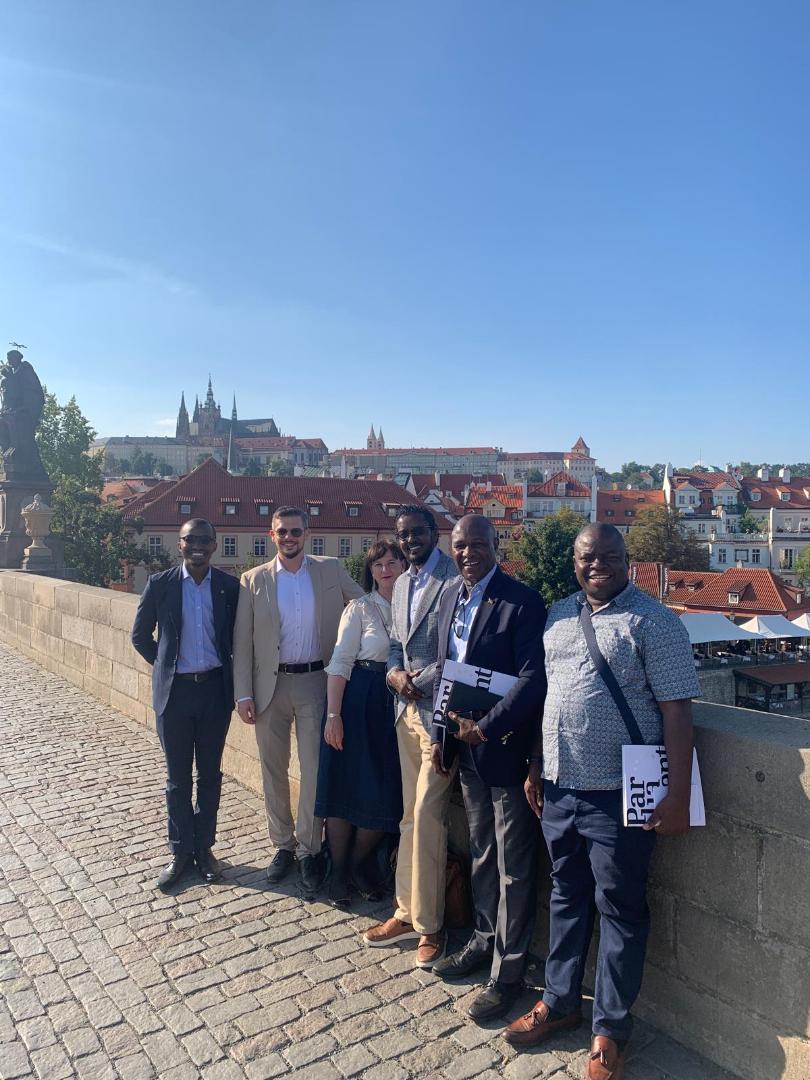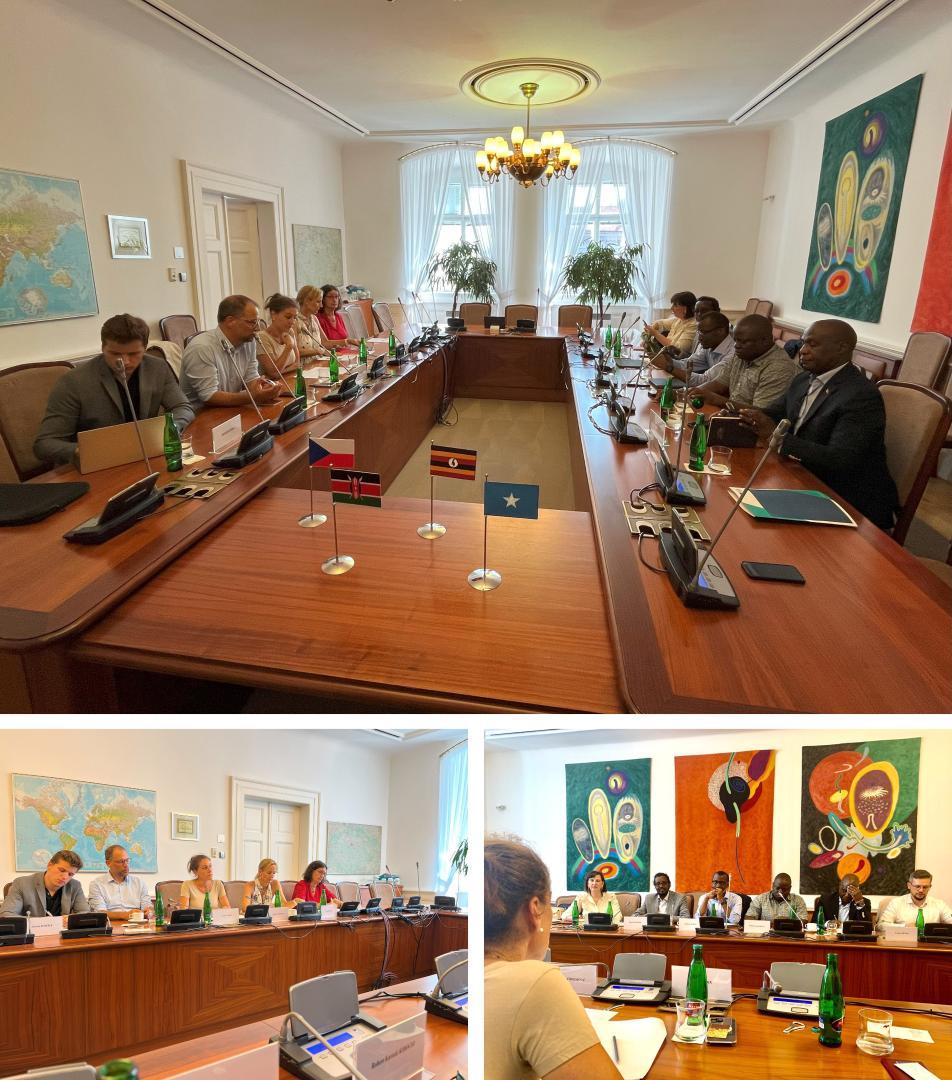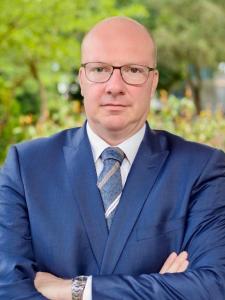In the Czech capital, the delegation engaged in political talks with the Deputy Minister of the Czech Ministry of Foreign Affairs, the Chief of Staff of Military Office of the President of the Republic, the Director of the Defence Policy Department at the Ministry of Defence the Czech government’s Special Envoy for the Reconstruction of Ukraine, the Head of the Unit for International and European Affairs of the Department for Asylum and Migration Policy at the Czech Ministry of the Interior, and representatives from the Czech think tank Afripoli, the Charles University in Prague, and the Forum 2000, which was founded by Václav Havel, first president of the Czech Republic.
The delegation comprised Ahmed Abdi Koshin, Secretary of the Somali Defence Committee and Member of the Somali Federal Parliament, Fredrick Lusuli Ikana, Member of Parliament in the Kenyan National Assembly and Member of the Defence, National Intelligence and Foreign Relations Committee, Robert Kariuki Kibochi, retired General of the Kenyan Army and Chief of Defence Forces of the Kenyan Army until 2023, and Raymond Muyuni, Head of Current Affairs at Nation Media Group – Uganda and co-founder of the African Institute for Investigative Journalism. They were accompanied by Dr Susanne Conrad, Policy Advisor for Rule of Law and Security in Sub-Saharan Africa from the KAS headquarters in Berlin, and Gregory Meyer, Project Manager and Research Associate at the RP SIPODI East Africa based in Uganda. The programme was organised by Tomislav Delinić, Director of the KAS Offices in the Czech Republic and Slovakia, and other colleagues from these two offices, who accompanied the delegation through large parts of the programme.
Discussions covered various cooperation opportunities and especially focused on the roles of Russia and China in both Sub-Saharan Africa and Europe. In addition, the EU’s missions on the African continent, such as the European Union Training Missions (EUTM), the European Union Capacity Building Missions (EUCAP), and the European Union Naval Force (EUNAVFOR) operations were critically examined from both Czech and African perspectives. Current issues including migration, terrorism, democratisation, economic development, and disinformation were recurrently addressed in the discussions.
The programme began with a dinner on the evening of 27th August, followed by an introduction to Czech perspectives on current political events by Tomislav Delinić. The following day, the delegation visited the Czech Ministry of Foreign Affairs and engaged in discussions with Jiří Kozák, Deputy Minister of Foreign Affairs, and Václav Prášil, the Director of the Department for Sub-Saharan Africa and other representatives of the ministry about economic prosperity, on the role of democracy, and possibilities for cooperation between the Czech Republic, Europe, and African countries. A subsequent talk with Brigadier General Radek Hasala, Chief of Staff of the Military Office of the President of the Republic, provided a lively exchange on the effectiveness of EU missions in Sub-Saharan Africa, with several EU missions currently active in the Horn of Africa, including three in Somalia.
Following a brief walk and a lunch featuring traditional Czech cuisine, the delegation had the opportunity to discuss collaboration possibilities and the work of Czech companies in Africa's health sector with Jiří Plecitý and Jan Horák from the Czech Health Technology Institute. An extended discussion in the afternoon with Petr Boháček and Vojtěch Bilý from the think tank Afripoli and Bohumil Doboš from Charles University underscored the Czech side’s keen interest in the African continent and a deeper exchange.
On Thursday, 29th August, the day started with a conversation with Tomáš Urubek, Head of Unit for International and European Affairs in the Department of Asylum and Migration Policy at the Ministry of Interior of the Czech Republic. He emphasised the importance of centralised reception and registration centres for incoming refugees and the need for complete registration for smooth operations, efficient management, and effective allocation of services. Urubek highlighted the openness of the Czech Republic to migrants and refugees but stressed the necessity of addressing irregular migration and asylum system abuse decisively.
After a brief lunch, the delegation met with Martin Riegl, Director of the Defence Policy Department at the Ministry of Defence. The group engaged in a lively discussion on topics including NATO’s role, the Russia-Ukraine war, and Russian activities on the African continent. The EU's role, its foreign policy, and the effectiveness of various missions in Africa were again critically examined. As the final item of the programme, the delegation visited the Chamber of Deputies of the Czech Republic. In an exchange with the Member of Parliament Eva Decroix, Member of the Foreign Affairs Committee and Deputy Chairwoman of the governing party ODS, discussions centred on China’s role in Africa and Europe, as well as threats from Russia to both continents.
The following day began with a discussion with Jakub Klepal and Daniela Monsportová from the Forum 2000. This was followed by a meeting with Tomáš Kopečný, the Czech government’s Special Envoy for the Reconstruction of Ukraine, who had previously worked in various African countries in previous assignments and was highly interested in engaging with the group.
The delegation trip culminated in participation in the 19th GLOBSEC Forum, which, after many years in Bratislava, was held in Prague for the first time. This forum, regarded as one of Europe's key platforms for dialogue on foreign and security affairs, had over 2,300 participants. Both the four African delegates and the two KAS representatives were actively involved as speakers and contributors to the panels.
About this series
The Konrad-Adenauer-Stiftung, its educational institutions, centres and foreign offices, offer several thousand events on various subjects each year. We provide up to date and exclusive reports on selected conferences, events and symposia at www.kas.de. In addition to a summary of the contents, you can also find additional material such as pictures, speeches, videos or audio clips.



